[Traducción al español más abajo / Spanish translation below]
Watch our presentation movie to get an introduction to our project!
Do you want to know if your food contains GMOs? In this short video we are going tell you what you would need to perform GM detection, how it can be done, what it costs, and how long it can take. Ready?
.
The Agri/Cultures Project is a four-year research project funded by the Norwegian Research Council’s FRIPRO programme. The project is focused on developing novel concepts, methods and empirical knowledge for understanding and assessing the complex relational networks embodied in and performed by agricultural biotechnologies.
The use of biotechnologies has been one of the most controversial developments in modern agriculture and remains an issue of ongoing debate and unresolved social and political tension around the world. Norway has been internationally pioneering with a Gene Technology Act (GTA) that explicitly requires that the introduction and use of genetically modified organisms (GMOs) is socially and ethically justifiable, with considerable weight given to societal benefit and contribution to sustainable development. Despite this intention, there is currently a lack of available knowledge on GMOs concerning these issues, a lack of concrete methods for their research, and a lack of clarity on how to approach socio-economic assessment. This makes it very difficult in practice to operationalise the assessment of GMOs (for both cultivation and import) according to their social and ethical justifiability, as currently required by Norwegian law.
To help address this problem, the Agri/Cultures project seeks to:
a) develop new ways of thinking about and researching GMOs that sees them not as isolated technological objects that can be assessed on their own but rather as dynamic networks of social, ecological and technical relations that have to be considered and assessed as a package,
b) generate relevant knowledge that can enable both the assessment of the relational network of GMOs against criteria of sustainability, societal benefit and ethical justifiability, and the comparison of this network with those of conventional and organic agri/cultures.
c) explore novel ways to capture and visualise these relational networks so that the information is accessible, engaging, relevant and useful for publics and policy-makers.

Photo: ©IITA Image Library #DSCF0086 CC-licence
The project will first generate cartographies of the socio-ecological and techno-cultural networks involved in different agricultural systems, focusing on the case study of Bt maize and comparing this to conventional and organic systems of maize. The project will also explore the interaction and potential for co-existence between these three agri-food systems. To create analytic depth, the cartographies will also explore the worldviews and human/nature relations that are embedded in and performed by the different agri/cultures. In later years, the project will focus on a particular set of stakeholders within the relational networks that are crucial yet particularly vulnerable actors in agri-food systems: bee/keepers. In this work, the aim will be to understand how the three different systems of maize production effect and are affected by bee/keepers and how the assessment of sustainability, social utility and ethical justifiability are perceived and assessed from their perspective.
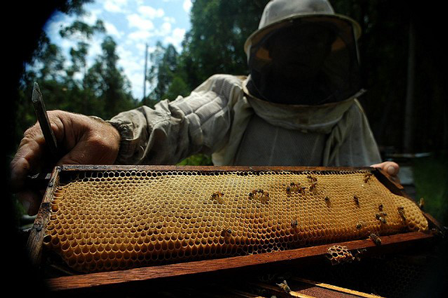
Photo:©Roberto Vinicius CC-licence
In addition to standard academic deliverables such as publications in international peer-reviewed journals, policy reports and articles in the popular press, this project also seeks to be innovative in its approach to communication. With a specific intention to explore novel ways to capture, visualise, and assess the relational networks involved in modern agri-food systems, and to ensure that its results will be disseminated to various audiences, the project will develop an online identity and digital transmedia platform.
Publications
Preston, C. and Wickson, F. (2016). “Broadening the lens for the governance of emerging technologies: Care ethics and agricultural biotechnology”, Technology in Society 45:48-57. DOI:10.1016/j.techsoc.2016.03.001
Binimelis, R., Wickson, F. and Herrero, A. (2016). “Agricultural coexistence“, in Thompson, P.B. and Kaplan, D.M. (eds), Encyclopedia of food and agricultural ethics. Dordrecht, The Netherlands: Springer. pp. 1-6
Wickson, F., Binimelis, R. and Herrero, A. (2016). “Should Organic Agriculture Maintain Its Opposition to GM? New Techniques Writing the Same Old Story“, Sustainability , 8(11), 1105; doi:10.3390/su8111105
Herrerro, A., Wickson, F. and Binimelis, R. (2015). “Seeing GMOs from a Systems Perspective: The Need for Comparative Cartographies of Agri/Cultures for Sustainability Assessment“, Sustainability 2015, 7(8), 11321-11344; doi:10.3390/su70811321
The Research Team
Rosa Binimelis
Amaranta Herrero
Fern Wickson (Project Manager)
.
.
El Proyecto Agri/Culturas
Mira nuestro video de presentación para conocer nuestro proyecto!
¿Quieres saber si tu comida contiene transgénicos? En este corto vídeo te vamos a contar qué necesitas para realizar una detección de transgénicos, cómo se podría hacer, cuánto cuesta y cuánto puede tomarte. Empezamos?
.
El Proyecto Agri/Culturas es un proyecto de investigación de cuatro años financiado por el programa FRIPO del Consejo de Investigación Noruego. El proyecto se centra en desarrollar nuevos conceptos, métodos y conocimiento empírico para comprender y evaluar las complejas redes relacionales encarnadas en y representadas por las biotecnologías agrícolas.
El uso de las biotecnologías ha sido uno de los desarrollos más controvertidos en la agricultura moderna y continúa siendo un debate activo y una fuente de tensiones sociales y políticas en todo el mundo. Noruega ha sido pionera internacional en la puesta en marcha de una Ley de Tecnología Genética (Gene Technology Act, en inglés (GTA)) que explícitamente demanda que la introducción y el uso de organismos modificados genéticamente (OMGs) sea social y éticamente justificable, dando con ello considerable peso a los beneficios sociales y a la contribución al desarrollo sostenible. A pesar de estas buenas intenciones, actualmente hay carencia de conocimiento sobre OMGs en relación a estos temas, una falta de métodos concretos para su investigación y una insuficiente claridad sobre cómo operacionalizar dicha evaluación socioeconómica. Esto hace que, a la práctica, sea muy difícil operacionalizar la evaluación de OMGs (tanto para cultivo como para su importación) de acuerdo con su justificabilidad ética y social, como se requiere por ley en Noruega.
Para contribuir a solucionar este problema, el proyecto Agri/Culturas quiere:
a) desarrollar nuevas formas de pensar e investigar sobre los OMGs que los conceptualicen no como objetos tecnológicos aislados que pueden ser evaluados por separado, sino como redes dinámicas de relaciones sociales, ecológicas y tecnológicas que deben ser consideradas y evaluadas en conjunto,
b) generar conocimiento relevante que permita tanto la evaluación de las redes relacionales de OMGs implementando criterios de sostenibilidad, beneficio para la sociedad y justificabilidad ética, así como la comparación de estas redes con las de la agri/cultura convencional y ecológica.
c) explorar nuevas formas de capturar y visualizar estas redes relacionales de forma que la información sea accesible, comprometida, relevante y útil para legisladores y para distintos públicos.
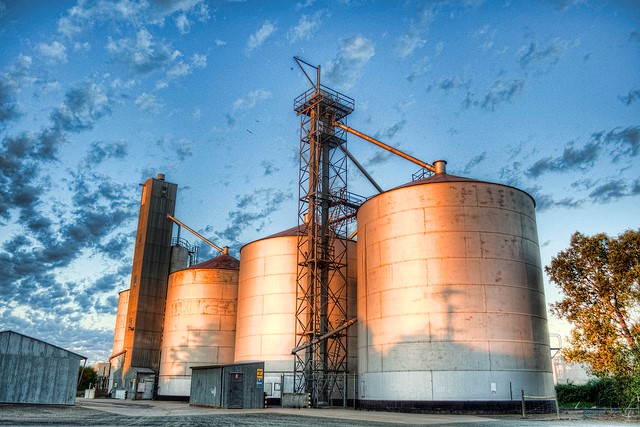
Photo: ©Indigo Skies Photography. Silos CC-licence
Con este fin, en primer lugar, el proyecto generará cartografías de las redes socio-ecológicas y tecno-culturales implicadas en los diferentes sistemas agrícolas, tomando como estudio de caso el maíz Bt y comparándolo con los sistemas convencionales y ecológicos del maíz. El proyecto también explorará las interacciones y la potencialidad de coexistencia entre estos tres sistemas agroalimentarios. Para crear profundidad analítica, estas cartografías también explorarán las cosmovisiones y las relaciones entre naturaleza y sociedad que están encarnadas en y representadas por las diferentes agri/culturas. Más adelante, el proyecto también se centrará en un grupo particular de agentes sociales en estas redes que se caracterizan por ser unos actores cruciales a la par que particularmente vulnerables en los sistemas agroalimentarios: los apicultores. En esta fase, el objetivo será comprender cómo los tres diferentes sistemas de la producción de maíz afectan y son afectados por los apicultores y cómo la evaluación de la sostenibilidad, la utilidad social y la justificabilidad ética se percibe y se evalúa desde su perspectiva.
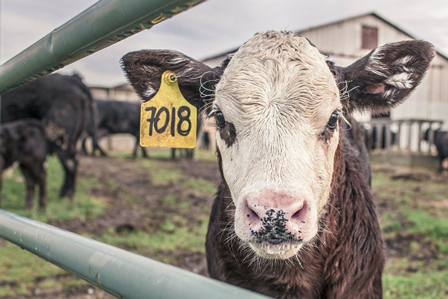
Photo: ©RyanMcGuire Pixabay CC0 1.0-licence
Además de los productos académicos estándares, como publicaciones en revistas internacionales revisadas por pares, informes y artículos de divulgación, este proyecto también busca ser novedoso en sus canales de comunicación científica. Con una intención específica de explorar nuevas formas de capturar, visualizar y evaluar las redes relacionales implicadas en los modernos sistemas agroalimentarios, y para asegurarnos que los resultados serán disponibles para audiencias diversas, el proyecto desarrollará una identidad online y una plataforma digital transmedia.
Publicaciones
Preston, C. and Wickson, F. (2016). “Broadening the lens for the governance of emerging technologies: Care ethics and agricultural biotechnology”, Technology in Society 45:48-57. DOI:10.1016/j.techsoc.2016.03.001
Binimelis, R., Wickson, F. and Herrero, A. (2016). “Agricultural coexistence“, in Thompson, P.B. and Kaplan, D.M. (eds), Encyclopedia of food and agricultural ethics. Dordrecht, The Netherlands: Springer. pp. 1-6
Wickson, F., Binimelis, R. and Herrero, A. (2016). “Should Organic Agriculture Maintain Its Opposition to GM? New Techniques Writing the Same Old Story“, Sustainability , 8(11), 1105; doi:10.3390/su8111105
Herrerro, A., Wickson, F. and Binimelis, R. (2015). “Seeing GMOs from a Systems Perspective: The Need for Comparative Cartographies of Agri/Cultures for Sustainability Assessment“, Sustainability 2015, 7(8), 11321-11344; doi:10.3390/su70811321
El Equipo Investigador
Rosa Binimelis
Amaranta Herrero
Fern Wickson (Coordinadora del Proyecto)



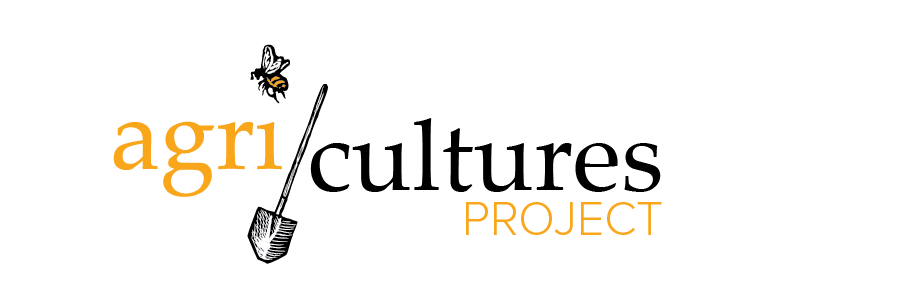
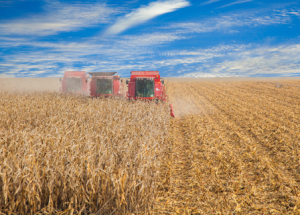
 - web som funkler
- web som funkler